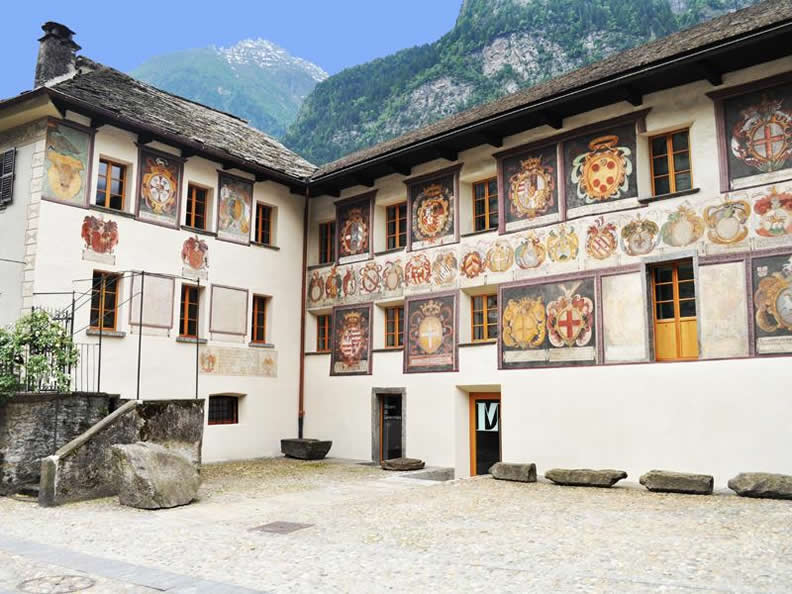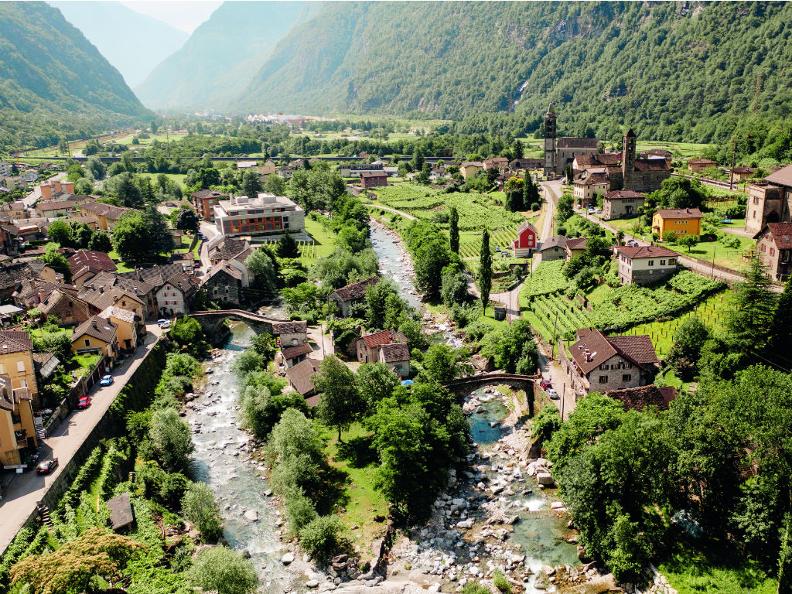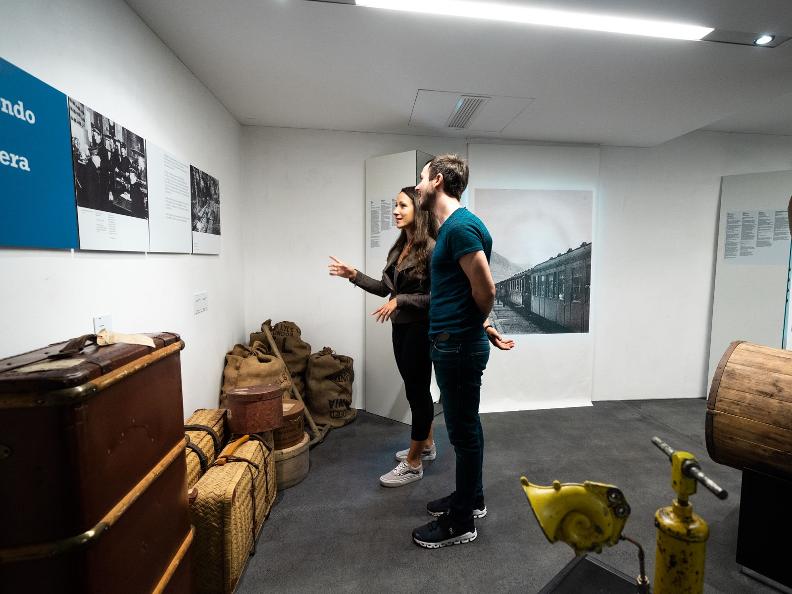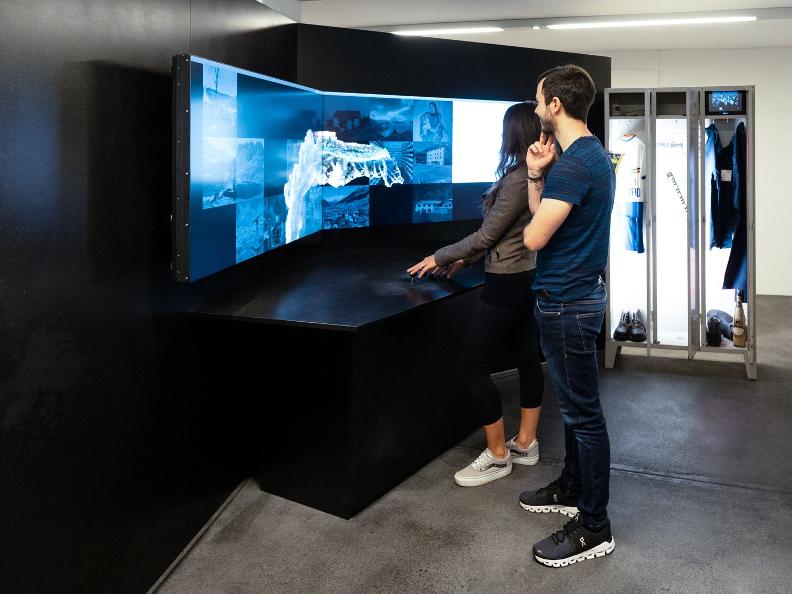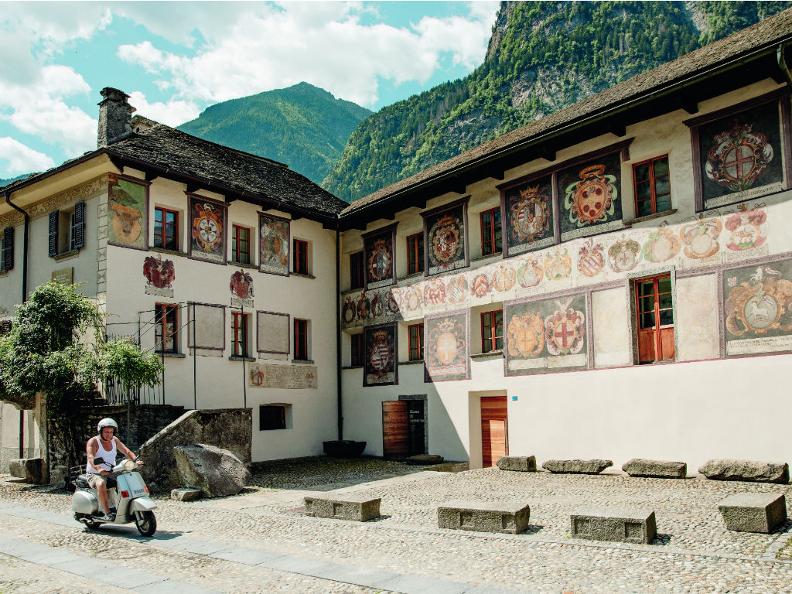
Museo di Leventina
Don't miss a visit to the temporary exhibition dedicated to the historical and sociological aspects of ice in Leventina. To enrich your trip, we also recommend a visit to the permanent exhibition: Is there a Leventina identity today?
Does a Leventina identity exist?
How can man tell about a culture, define a population, decide who is part of a specific ethnicity? Who decides? Which are the criteria that determine the belonging or exclusion of a person in a certain group
These questions, already asked by the first anthropologists, represented the starting point of the consideration that lead to a re-thinking of the staging of the permanent exhibition at the Museo of Leventina.
The exhibition questions the possibility that an "identity" may or may not exhists and if it does, which form or content could have. The visitor is guided through the exhibition in a discovery of people, symbols and lifestyles that defined the Valley on a path that crosses several eras until today. Watch out ...not everything is like you see it: lots of stereotypes could be destroyed and many ideas could reval themselves as creations of your mind ...
ON ICE - The fascination of ice
As cold and aseptic as it may seem, ice awakens people's imagination and creativity. Social dynamics develop around the ice, the spirit of aggregation is strengthened and carefree moments are shared. Through play and ice sports such as hockey, skating or curling, one can discover ritualising attitudes and observe the staging of shared societal values.
The exhibition is divided into five thematic sections that will lead visitors to discover in a playful way different historical and sociological aspects that develop around ice. For example, the question will be asked: in how many ways can ice be exploited? How and where did people skate in the past? Does a team identity really exist? A visit to the exhibition will be an opportunity to discover some unpublished aspects of one of the most important phenomena in Swiss hockey: the derby between the Ambrì-Piotta and Lugano teams.
In the exhibition you will be able to see historical and contemporary objects including a rich collection of vintage skates and interact in a playful way with the installations.
CASA STANGA: Old pub, today home of the Leventina Museum
Located on the old way "Via Francigena", just south of the two bridges that cross the Ticino River, the "Museo di Leventina" . The architectural complex of "Casa" is of big historic-artistic interest and is registered in the inventory of cultural heritage of national and cantonal importance. Casa Stanga used to be, for centuries, a home and a pub. The facades have been painted originally in 1588-89 by Giovanni Battista Tarilli and Domenico Caresana with all the family coat-of.arms of famous travellers that came from all over Europe and that lodged there. In the year 2014, the venue of the "Museo di Leventina" has been re-opened to the public after some years due to renovations and restoration of some of the paintings.
Special openings and guided tours are available on request throughout the year.
Discover all the guided tours organised by the museum! LINK
SUMMER OPENING
04.04.2025 - 26.10.2025
Tuesday to Sunday: 14:00-17:00
WINTER OPENING
27.10.2024 – 03.04.2025
Every sunday: 14:00-17:00
---
Accessibility Services
This cultural/tourist point of interest took part in the digital data mapping project on accessibility by Pro Infirmis. The project was carried out with the collaboration and support of Ticino Turismo, the four regional tourist organisations and the Department of Education, Culture and Sport.
All information on the accessibility of the partner in question can be found on the following page.
Partner Ticino Ticket
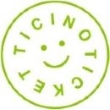
Thanks to Ticino Ticket you can visit this attraction at a discounted price. Ask the ticket at your hotel, campsite or hostel and find out all the offers you can receive.
Features
-
TIMETABLE
Tuesday: 14:00 - 17:00
Wednesday: 14:00 - 17:00
Thursday: 14:00 - 17:00
Friday: 14:00 - 17:00
Saturday: 14:00 - 17:00
Sunday: 14:00 - 17:00
- MUSEUMS Ethnographic museums
